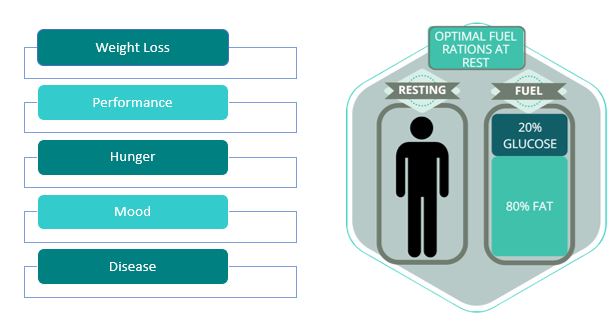
When it comes to dieting, research shows the majority of people will regain some – if not most – of the weight they’ve lost.
While there are many reasons why this weight regain may happen, many assume it’s because dieting permanently wrecks your metabolism. But while it’s true that dieting can slow your metabolism, as shown in this study on Biggest Loser contestants, diet can also improve your metabolism in many positive ways.

When we talk about weight loss, we really mean fat loss, so the key to successful long term weight loss without the detrimental decline in metabolic rate, is burning fat for fuel.
 Interestingly, fat cells don't actually disappear, they shrink in size. As contradictory as it sounds, all these changes actually result in a more efficient and ultimately healthier metabolism. For example, smaller fat cells are better for our health, as over-inflated “sick” fat cells don’t work as well in getting rid of surplus sugar and fat. This can lead to high levels of sugar and fat in the blood, increasing risk of insulin resistance, diabetes, and cardiovascular disease. It also help to explain why you don't always need to be overweight to have some of these conditions.
Interestingly, fat cells don't actually disappear, they shrink in size. As contradictory as it sounds, all these changes actually result in a more efficient and ultimately healthier metabolism. For example, smaller fat cells are better for our health, as over-inflated “sick” fat cells don’t work as well in getting rid of surplus sugar and fat. This can lead to high levels of sugar and fat in the blood, increasing risk of insulin resistance, diabetes, and cardiovascular disease. It also help to explain why you don't always need to be overweight to have some of these conditions.
Is your diet ruining your metabolism or improving it? How much and what kind of activity do you need to do to maintain muscle, minimise metabolic slowing and prevent weight gain?
*Note: This article has been adapted from this piece in the conversation, but can't be shared directly on Facebook due to new restrictions.
